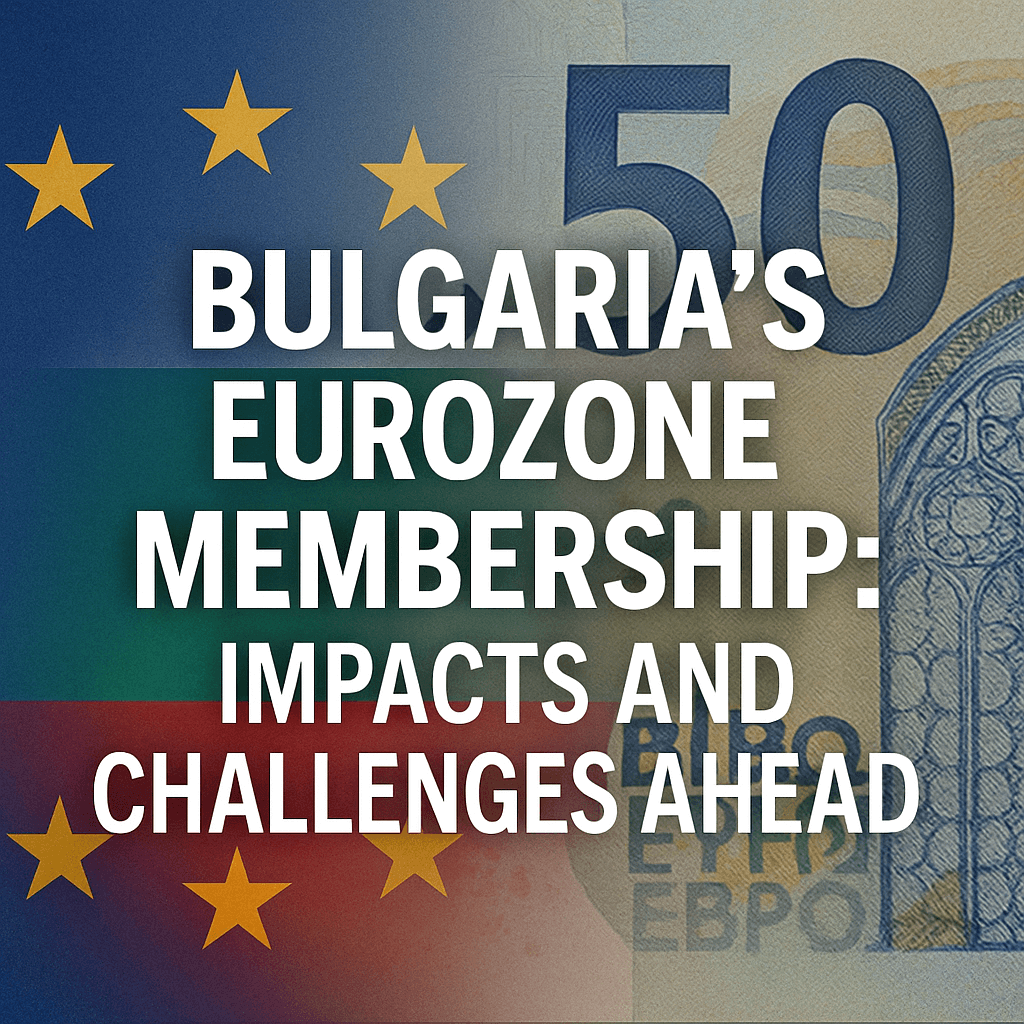Bulgaria’s Eurozone Membership: Impacts and Challenges Ahead

Bulgaria is poised to join the eurozone at the start of 2024 after successfully addressing a series of economic criteria, culminating in approval from both the European Central Bank (ECB) and the European Commission on Wednesday. This momentous development signals a significant shift for the Balkan nation and its ongoing economic narratives.
The Historic Approval
EU economy chief Valdis Dombrovskis hailed the decision as a “historic moment for Bulgaria, the euro area, and the European Union.” ECB Executive Board Member Philip Lane commended Bulgaria for its dedication to meeting the necessary adjustments, emphasizing the importance of stability in the face of economic pressure.
Challenges Faced on the Path to Euro Adoption
Since Bulgaria’s entry into the EU in 2007, the nation has aimed to transition from its current currency, the lev, to the euro. However, persistent inflation and internal political strife have hindered progress. The inflation rate surged during Europe’s energy crisis, triggered by geopolitical tensions following Russia’s invasion of Ukraine, necessitating careful monitoring.
- In April 2023, the annual Consumer Price Index (CPI) recorded a cooling rate of 3.5%, approaching the European Union’s target of 3%.
- The ECB and the Commission have now confirmed that Bulgaria meets key economic parameters, including public debt, fiscal deficit, inflation rates, interest rates, and exchange rate stability.
Next Steps Towards Euro Adoption
Bulgaria’s accession must receive final approval from euro area finance ministers, with the decision expected on July 8, 2023. Wednesday’s announcement followed widespread protests against the euro adoption, driven by various disinformation campaigns that echoed fears of increased poverty and inflation.
Political Dynamics and Public Sentiment
The political landscape surrounding Bulgaria’s eurozone aspiration remains contentious. President Rumen Radev has fueled the anti-euro sentiment by advocating for a referendum, a proposal that was ultimately dismissed by the pro-European majority in parliament. Critics accused Radev of aligning with Ant-European interests, hinting at efforts to derail Bulgaria’s euro adoption strategy.
Inflation and Economic Concerns
Historically, countries transitioning to the euro have experienced transient inflation spikes. However, the benefits of eurozone membership often outweigh these initial hurdles, offering a spectrum of advantages:
- Lower borrowing costs due to enhanced economic credibility.
- Increased foreign direct investment (FDI) opportunities.
- Facilitation of cross-border trade, optimizing market access.
Additionally, joining the eurozone would afford Bulgaria a more influential role in shaping the ECB’s monetary policy, thus empowering its economic landscape.
Comparative Analysis with Croatia’s Experience
To contextualize Bulgaria’s impending transition, it is essential to draw parallels with Croatia, which became the most recent member of the eurozone in 2023. Croatia’s journey involved navigating through economic turmoil amid the COVID-19 pandemic and global economic shifts. Their successful euro adoption enhanced tourism revenues and stabilized the economy through strengthened trade relations.
Expert Opinions on Future Economic Trajectories
Economists remain divided on the potential outcomes of Bulgaria’s entry into the eurozone. Some express optimism about accelerated economic growth and modernization, while others caution against the repercussions of inflation volatility. Analysts suggest that Bulgaria’s readiness to embrace euro adoption will largely depend on its ability to manage public perception and stabilize economic fundamentals amidst changing geopolitical and economic dynamics.
Conclusion
Bulgaria’s journey towards eurozone membership reflects a blend of economic aspirations and societal apprehensions. As the nation prepares for the final decision by finance ministers, the ongoing discourse surrounding euro adoption will be pivotal in shaping not only Bulgaria’s economic future but also its relationship with the broader European economic framework.
Source: euronews